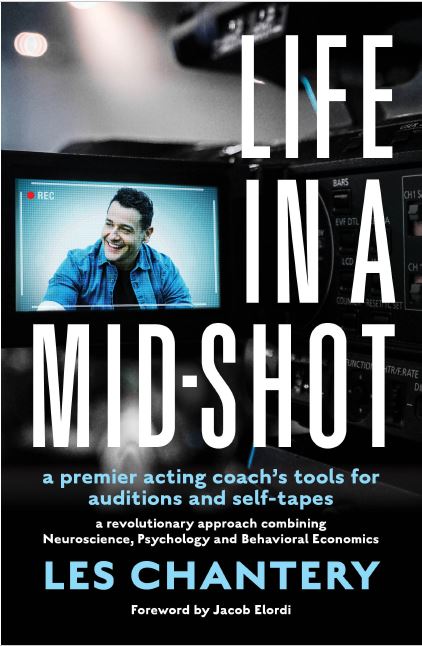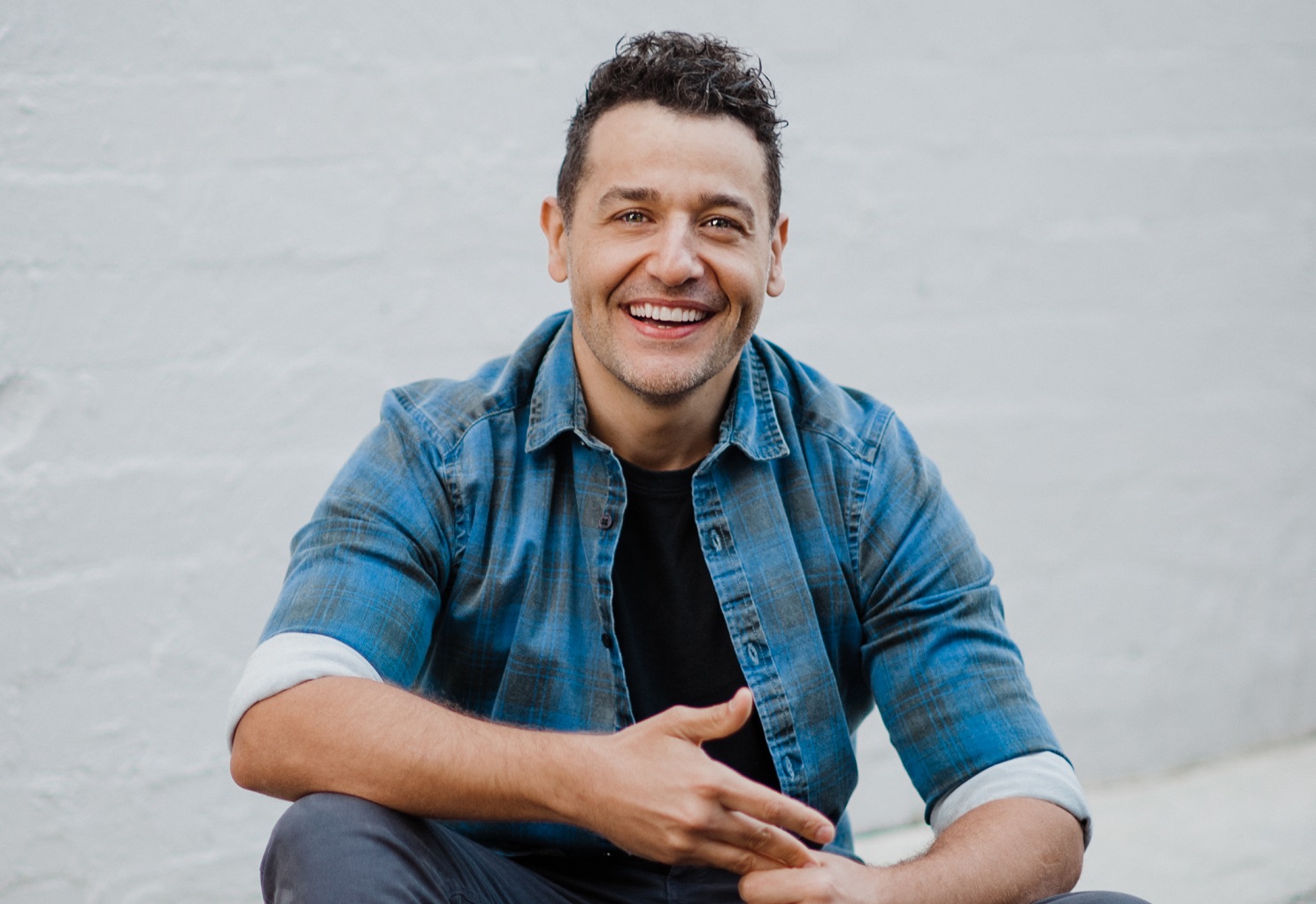An offhand comment from Al Pacino on the set of Righteous Kill went on to change Les Chantery’s life: “Sometimes it’s not the best actor who gets the role, but it’s the actor who gives the best audition.”
After years of frustration, the trajectory of his acting career finally made sense to him.
Back in ’98 – with no prior acting experience – Chantery, an economics graduate, booked a job on Pitch Black. He had auditioned for a character who was terrified of aliens. Looking back, he thinks he got the job as he was terrified of just being in the room; it suited the role.
During the shoot, Chantery was taken under the wing of lead Vin Diesel, who taught him everything there was to know about hitting marks, close ups and continuity. Diesel urged him to study acting formally, suggesting he had raw talent.
So the budding actor enrolled at NIDA. After finishing his three years in 2003, he was fluent in Shakespeare, Chekov and Ibsen. But no jobs followed.
He was confused. He’d landed a part on a Hollywood film when he had no acting experience, but now he was formally-trained, he couldn’t get work.
Out of frustration, in 2007 he applied for NIDA’s Mike Walsh scholarship, which took him over to The States. A short film he’d made connected with Jon Avnet, who gave him a job working on Righteous Kill.
On set Pacino offered the above wisdom as a throwaway line, while describing to Chantery the incredible audition he’d witnessed of a young actress for the play Salome – Jessica Chastain.
“I finally understood that there was a there was a missing piece in the actors’ puzzle, and he’d solved it for me,” Chantery tells IF.
“That missing piece was the audition. That, as much as we train in film and TV, and as much as we train in theatre – which in my opinion are two different mediums – there’s a third medium. That’s the audition.”
Inspired by Pacino’s words, Chantery then used his Mike Walsh scholarship to crack the audition “code”. He blended his economics knowledge with neuroscience, psychology and acting theory to come up with a new approach to self-tapes and auditions, arguing they require their own specific and technical set of skills.
That work today informs his practice as an acting coach, with past clients including actors like Jacob Elordi, Geraldine Viswanathan, Uli Letukefu, Mia Healy, William Lodder and Sam Corlett. He also teaches film and TV acting for NIDA, including audition subjects.
While Chantery works with a lot of high profile actors, his biggest thrill is taking someone with no experience from “0 to 1”. Among them is young actor Sam Rechner (Ruby’s Choice) who he recently helped book a gig on Steven Spielberg’s The Fabelmans.

Chantery has further distilled his experience into a book, Life In a Mid-Shot: A Premier Acting Coach’s Tool for Auditions and Self-Tapes. It covers a variety of topics and offers actors different tools to overcome nerves, master the technical elements of the audition, stand out and find the human within a character. Elordi writes the foreword.
“There’s a sad reality… which is there are some actors who will slip through the cracks, not because they’re not great actors – they’re fantastic actors – but for some reason, they they’re just not able to do it on time and under pressure, which is what an audition is.
“An audition is not about waiting for an actor to be inspired. It’s literally telling an actor, ‘No, you’ve got to be inspired on Tuesday at 11.45am and in 10 minutes, please’.
“That’s what the book is really tackling; this final missing and probably the most important part of an actor’s career – the audition. People joke about this, that an actor is a professional auditionee. That’s what they spend most of their careers doing.”
The pandemic has seen the rise of the self-tape over in-person auditions. Chantery argues these are their own medium again. A self-tape has no edits, and no direction. It is a single shot – a mid-shot – for an extended period of time. Chantery invokes Viola Davis, who says “all you have to do in a movie is sustain a performance for 30 seconds” before an editor cuts away. In a self-tape, an actor has to sustain a performance for two minutes or more.
“The self-tape has put all the onus on the actor to be actor, to be editor, to be director and make an offer for the role,” Chantery says.
“Actors are really good at taking direction, but without direction, sometimes [self-tapes] can feel like throwing a dart against the board and hoping you hit the bullseye.”
However, there is plenty in the self-tape that is to actor’s advantage, argues Chantery. For one, they allow casting directors to see more actors for a role than they might have previously.
He also thinks it is to an actor’s benefit that many call backs are now on Zoom. Much of the rule of the self-tape still applies; it is on camera, and it’s a single shot. Yet more people, such as studio executives, are anonymously able to sit in the call back live – able to see what the actor is like, not only while performing, but also in conversation – all while not necessarily distracting or daunting the actor.
Chantery also notes that eyes are one of the actors’ most powerful tools, and an eyeline is easy to establish on Zoom.
“It’s a close-up medium to do with your eyes… It takes a lot of focus off, ‘What am I doing with my hands?’, ‘What am I doing with my legs?’, which a lot of people in real life situations get self-conscious about… Once you understand what the camera is begging you to do with your eyes, it’s easy.”
Further, if one of his acting clients is on a Zoom call back, Chantery notes he is able to be in the room, behind the camera – almost like an audition conductor.
“I’m listening to what the director is telling them. If I feel like they’re not quite adopting the note, I’m writing big words on post-it notes like ‘slow down’ or ‘do your button up’, or ‘get more vulnerable in this section’ – because the nerves can still be going on, so the actors aren’t really listening.
“There was one actor who I work with – a new up-and-comer who really gets nervous. I said to her, ‘You know what you’re going to do on the Zoom call back? You’re going to keep a little bowl of ice cubes under the camera so they can’t see it. And when you get really nervous, you’re going to pick up the ice cubes, because we know that cold kicks in the parasympathetic nervous system’. So she did her entire call back with a major Australian director with ice cubes in her hand – and nobody knew, because that was the gift of Zoom.”
Working with lots of different actors, Chantery notes that the most brilliant share one thing in common, that is, they lack “the gene for embarrassment.”
“They’re not self-conscious people. They’re willing to try anything and take a risk. I think at the end of the day, conviction is as equally important as talent. There’s something really appealing about watching an actor be deeply unapologetic and have conviction. To have conviction doesn’t even require confidence. It’s about being unwavering in your choices. I would say that for any actor… at the end of the day, when someone is about to call action, if you do it with conviction, you will also convince us, the viewer.”
Some of Les Chantery’s top tips to nail your audition:
- Establish a genuine point of care for the character you are portraying. For Chantery, this goes above empathy into compassion; you want to take action on behalf of this character. “I would always ask an actor the following questions when we were about to work on an audition piece, ‘Do you care?’. It’s a simple yes or no answer. Second question: ‘Do you really care?’. Normally what happens is an actor will say, ‘Yes, I care’. And then I’ll say, ‘Do you really care?’ And they’ll say, ‘Well, I don’t really care about the character, but I really want the job’. Then we go, ‘Okay, well, this is not going to work. We have to find a way for you to really care about the character‘.”
- Work out what mood your character is in. “Mood determines our energy level, our emotional responses, how much tolerance we have to things, whether we’re solutions focused. Mood takes care of so much for character. Once we establish mood, it takes care of how that character’s going to sit or stand, the energy level of that character, the way the character’s listening to things.” Chantery calls that a persona – so right now, is your character Mr. Grumpy, Mr. Excitable, Mr. Agitated or Mr. Control Freak Mode?
- Establish: why now? That is to say, work out why this character has chosen to do what they are doing at this particular moment. “A lot of actors go, ‘I know why they’re doing it’. But I would go further and say, but ‘Why now? Why at 10.25 and not 10.26? Why are they doing it in this second?’ It creates urgency. That would be the secret power, I would say, of an self-tape.”
Life in a Mid-Shot: A Premier Acting Coach’s Tools for Auditions and Self-Tapes is available from retailers now.


